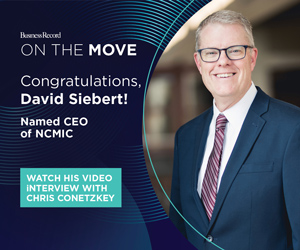Don’t just make the sale, collect the money, too

The object of the game is to make the sale, right? Wrong.
The object of the game is to make the sale and collect the money.
It never ceases to amaze me how incomplete salespeople really are. I’m not talking about their sales skill level, their communication capability, their attitude, not even their persistence in getting the sale.
Where they fall short is collecting the money.
“Jeffrey,” you whine, “I’m not in collections. I’m in sales!”
I don’t know how you could be more incorrect. Oh, you may have a collections department, but it serves more as a function of billing and accounting. Your main job as a salesperson is not just making the sale. Your main job as a salesperson is making sure you get paid after you make the sale. Otherwise, why bother?
The majority of salespeople are paid after money has been received. You’re not paid on booked sales. You’re not paid on delivered sales. You’re not paid on invoiced sales. You’re paid after the customer pays.
Well, if that’s the case, then why are you only making half a sale, and relying on somebody else to do the other half — collect the money? It’s your money. What are you thinking?
And who is that “someone else” you rely on to collect your money? The accounting department — the single worst customer relations department known to mankind. Its job is to collect money at all costs, including the cost of the relationship.
Salespeople want to keep customers because customers generate more orders, and more orders result in more commissions.
Accounting people want to collect money. They don’t care about sales. They don’t even like salespeople. They think salespeople are pushy. What the accounting department needs to do is wake up and smell the Pop-Tarts. The truth is, because of those pushy salespeople, accountants have pencils to push and beans to count.
Pardon my rant. Now back to the sales department, and since we’re talking the truth, the sales and money collecting department.
The first thing you have to do is communicate with the customer past the delivery of goods or services, all the way to the payment. Let’s get one thing straight: It’s not your job — unless you want to get paid. It’s not your job — unless you want to keep the customer. It’s not your job — unless you want to get the reorder. It’s not your job — unless you want to keep your job. Now do you get it?
To solidify the payment after purchase, you must do the following 4.5 things:
1. Find out who pays. Not a department, a name. You want the name of the person in charge. And the name of the person who actually does the processing.
2. Find out how payments are made. What are their normal terms of payment? Can you get a deposit? Do they usually pay on time? Do they take any form of discount? What kind of proof of delivery do they need? How do they process papers? Who approves invoices? From the time the invoice is approved, how long does it take to cut a check? Who signs the check?
I’ll bet any amount of money that 99.9 percent of the salespeople reading this column have never asked a customer these questions. These questions are the fulcrum point of the collection process. If the salesperson is the collector, or makes the arrangements for collection, it is more likely that the account will be preserved, and there will be a reorder. It is also likely that the salesperson will build a solid relationship based on upfront communication.
3. Agree on payment dates. This one’s a little more delicate. Agree that if goods are received by the 15th, that payment will be made on or before the 15th of the following month. The key phrase: “on or before.”
4. Agree on what happens if payment is late. Get the names and numbers of people YOU call if these promises are not kept.
4.5. Keep it friendly and keep it light. The object here is to create open dialogue and communication, not push the customer up against the wall before you have made a delivery or delivered on a promise.
Here’s a thought: Fifty percent of collection calls could be eliminated if salespeople would sell the payment at the same time they sell the product or service. It saves face, saves dollars, saves embarrassment and saves the customer.
If you want a few more facts about why salespeople should make arrangements to collect the money, go to www.gitomer.com, register if you’re a first-time user, and enter COLLECT in the GitBit box.
Jeffrey Gitomer can be reached by phone at (704) 333-1112 or by e-mail at salesman@gitomer.com.







